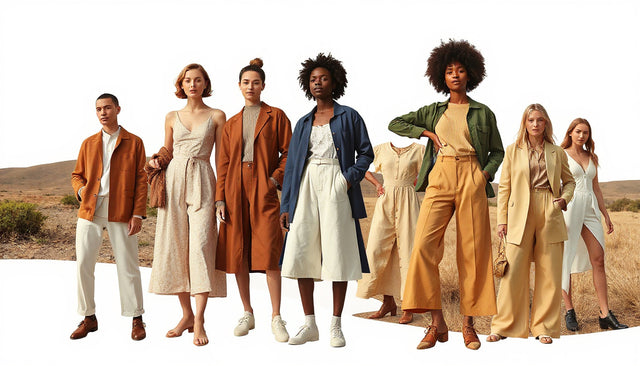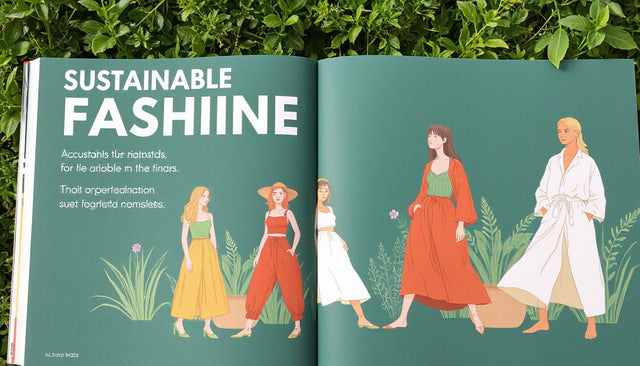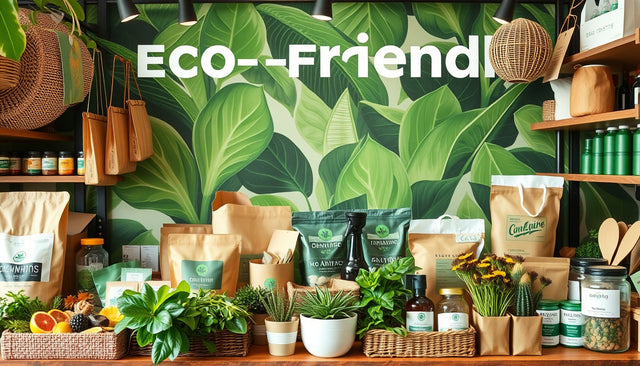Today’s fashion shows brands commit to responsible fabric sourcing. This act supports sustainability, ethics, and quality. Designers launch collections. Established brands deepen their sustainability. Knowing how to source fabrics responsibly stays crucial.
What Is Responsible Fabric Sourcing?
Responsible fabric sourcing means you choose textiles that protect nature and respect people. You do not pick materials solely for quality. You also consider the planet and the workers. For example, you choose:
- Eco-friendly fibers: Organic cotton, hemp, and linen use fewer resources and chemicals.
- Ethical production: Suppliers ensure fair labor and share full details.
- Waste reduction: Reusing deadstock or reclaimed fabrics cuts landfill waste.
- Certifications: GOTS, OEKO-TEX, and similar seals prove claims of safety and sustainability.
This practice builds a story of respect. It honors the planet, the workers, and the consumer.
Why Does Responsible Fabric Sourcing Matter?
1. Quality & Brand Trust
High-quality, responsibly sourced fabrics last long and feel good. This fact earns customer satisfaction. Customers also seek transparency. Brands openly sharing sourcing ethics build strong trust.
2. Sustainability & Environmental Impact
Organic cotton and hemp need fewer chemicals and less water. This use protects the environment. Reclaimed or deadstock fabrics also cut waste.
3. Operational Reliability
Verified suppliers lower risks. They help you avoid poor quality or unethical labor. This care keeps production steady and your brand safe.
How to Master Responsible Fabric Sourcing: Step-by-Step

Step 1: Understand Your Fabric Options
Study natural fibers like cotton, linen, hemp, and wool. They are breathable and biodegrade. Explore recycled fibers. These come from post-consumer textiles or recycled plastics. Find deadstock fabrics. They are excess textiles that would go to waste. Check certifications like GOTS, OEKO-TEX, or Fair Trade to prove sustainability.
Step 2: Identify and Vet Suppliers
Search for mills, converters, and wholesalers who focus on sustainable textiles. Visit trade shows such as Première Vision. These events show innovations and let you meet suppliers. Use online marketplaces that focus on sustainable fabrics. These platforms share certification details.
Step 3: Test and Verify Fabric Quality
Ask suppliers for samples or swatches. You test texture, colorfastness, durability, and shrinkage. Confirm certifications. Ask for documents that detail the supply chain. Check fiber content, fabric weight (GSM), and production origin.
Step 4: Negotiate Terms with Transparency
Set clear minimum order quantities (MOQs). Ask if you can combine smaller orders or colors. Discuss lead times and delivery options. Align these details with your production schedule. Negotiate pricing while noting that quality and responsibility can cost more.
Practical Tips for Sustainable Sourcing
Repair garments. Teach your team and customers to mend clothes so the lifecycle extends. Upcycle fabrics. Reclaimed or deadstock textiles can appear in creative ways. Plan fabric usage. This planning helps you avoid scraps. Choose local or regional suppliers. Local choices lower shipping distances and carbon footprints. Stay open. Clearly share your sourcing story with customers.
Where to Find Responsible Fabrics
Many committed suppliers offer ethical fabrics. Look for online shops that focus on organic, deadstock, or recycled textiles. Search for certified suppliers with GOTS, OEKO-TEX, or Fair Trade marks. Find fabric recyclers and textile recovery groups. Check directories or curated lists to save time on research.
Final Thoughts
Responsible fabric sourcing balances quality, ethics, sustainability, and operations. Research suppliers. Build strong relationships. Test fabric carefully. With time invested, you make better fashion. You also help create a healthier planet and a fairer industry.
Ready to transform your fabric sourcing strategy?
Begin by auditing your current suppliers. Explore sustainable alternatives. Connect with trusted partners who share your vision.
Remember: Every fabric tells a story. Let your story show respect, responsibility, and lasting style.
For further guidance or tailored sourcing support, connect with platforms that specialize in sustainable fabric procurement. They can help you navigate this important journey.
At Design Delight Studio, we’re committed to sustainable living and ethical fashion. Every article reflects our passion for mindful choices that empower both people and the planet.






















0 comentarios